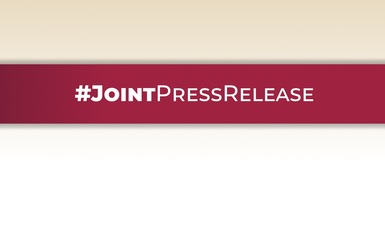The Government of Mexico is looking for an alternative to once again allow the export of coastal shrimp to the United States in order to avoid economic and social impacts to the industry. The Secretaries of Agriculture and Rural Development, Víctor Villalobos; and Economy, Tatiana Clouthier; and the National Aquaculture and Fisheries Commissioner, Octavio Almada Palafox, are working with Foreign Secretary Marcelo Ebrard on this issue.
National Commissioner Octavio Almada highlighted the economic and social importance of coastal shrimp fishing for more than 63,000 Mexican fishermen and their families, as well as for more than 254,000 additional people who depend on the industry.
He said that verification visits had only been made to larger trawl vessels, where 118 technical deficiencies were found in 130 sea turtle excluder devices (TEDs), and not to small coastal boats that have not been able to export Mexican shrimp to the United States since June 1 of this year. The observations made by the U.S. authorities were directly related to technical specifications. At no time were sea turtles caught in the nets.
Therefore, Commissioner Almada said that coastal shrimp fishing should not have been included in the export restrictions. Furthermore, precedent was set in 2010, when Mexico's certification was withdrawn but it continued to export coastal shrimp with a certificate of origin.
He noted that the Government of Mexico has the technical and operational capacity to issue a certificate of origin for coastal shrimp exports until wild-caught shrimp exports are re-certified, which should occur after new verification visits.
Scientific data indicates that there is no sea turtle mortality related to coastal shrimp harvesting, which can be verified with information from the research programs for Pacific, Gulf of Mexico and Caribbean Sea shrimp, which has data on sets and samples recorded by the National Fisheries and Aquaculture Institute (Inapesca).
Commissioner Almada said that, in order to regain certification for wild-caught shrimp, the government's new Action Plan for sea turtle conservation published in the Official Journal of the Federation on June 9, 2021 is progressing on schedule. Its last stage includes verification of the correct use of TEDs on large vessels, which will only take place at least seven days after the small boats begin harvesting coastal shrimp. Once the large vessels have been verified, the State Department will issue a resolution on shrimp certification.
Commissioner Almada warned that the gap between the start of coastal and artisanal shrimp harvesting and certification creates a period of economic uncertainty, since authorization to export shrimp would be lacking. This creates a negative economic impact on the harvesters and their families, and leads to a loss of jobs and well-being in the country's fishing regions. Therefore, he reaffirmed the Mexican government's commitment to working to allow access to the U.S. market for coastal shrimp.
U.S. Public Law 101-162, Section 609, is based on data from the 1970s and 1980s, which found that the trawl nets of large shrimping vessels were an important factor in sea turtle mortality. This led to the development of and subsequent improvements to TEDs by the National Marine Fisheries Service (NMFS), which is why the law is mainly focused on large trawl vessels that use TEDs and not on coastal and artisanal boats.
He reported that comparables based on TED regulations for coastal shrimp harvesting by small trawl vessels (under 40 feet) used by Southeastern U.S. shrimp fisheries are in the process of being published, which is why certification at this point should only apply to larger trawl vessels.
The head of Conapesca reiterated that, like the United States, the Mexican government is committed to the protection and conservation of sea turtles, which is why it has a solid and robust legal framework that is continuously updated. In addition, both countries belong to international forums such as the Inter-American Convention for the Protection and Conservation of Sea Turtles (IAC).
